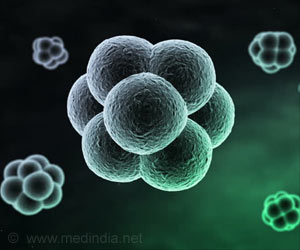- Artemisinin derivatives, known for antimalarial properties, effectively reduce androgen production in PCOS
- ATM, a derivative of artemisinin, promotes degradation of CYP11A1, a key enzyme in androgen biosynthesis
- Pilot clinical research shows artemisinin improves PCOS symptoms and regularizes menstrual cycles without side effects
Plant-derived chemicals recognized for their antimalarial characteristics treat polycystic ovarian syndrome, a severe public health issue affecting millions of women worldwide. According to a new study, these medicines, known as artemisinins, work by decreasing ovarian androgen production in various rodent models and a limited cohort of human patients. The findings not only demonstrate the adaptability of artemisinins but also provide a viable new method for preventing and treating the condition.
What is Polycystic Ovarian Syndrome?
Polycystic ovarian syndrome (PCOS) is a prevalent endocrine condition affecting women of reproductive age. It is distinguished by increased androgen levels (hyperandrogenemia), which are linked to a variety of health problems, including metabolic dysfunction, decreased ovulation, and, in many cases, infertility. Despite its great incidence, the molecular basis of PCOS is poorly known, and pharmacological treatments frequently target just certain symptoms with little efficacy. Because hyperandrogenemia is the primary feature and cause of the majority of PCOS-related symptoms and comorbidities, therapies aiming at reducing androgen production may be effective in treating PCOS.
Artemisinin Derivatives Show Promise in Treating PCOS
Yang Liu and colleagues investigated the effects of artemisinin and its derivatives on PCOS development. While these chemicals are most recognized for their antimalarial properties, they have also been demonstrated to have positive metabolic effects. In mouse models, Liu et al. discovered that artemether (ATM), an artemisinin derivative derived from Artemisia plants, inhibits ovarian androgen synthesis by targeting CYP11A1, a key enzyme in androgen biosynthesis. ATM promotes CYP11A1 degradation by increasing its interactions with the protease LONP1. The authors discovered that LONP1 overexpression decreases ovarian androgen production. In a pilot clinical research of 19 women with PCOS, Liu et al. established artemisinin’s therapeutic potential.
For these women, taking dihydroartemisinin, a malaria medicine, for 12 weeks significantly lowered key PCOS indicators and resulted in more regular menstrual cycles with no side effects. “Although further studies will be needed to fully understand the long-term effects and to optimize dosing strategies to maximize therapeutic outcomes, the discovery of artemisinins as effective remedies for PCOS nonetheless represents a promising new approach for the development of specific therapies that will potentially change the landscape of PCOS treatment,” mentioned Elisabet Stener-Victorin.
References:
- Artemisinins ameliorate polycystic ovarian syndrome by mediating LONP1-CYP11A1 interaction (DOI: 10.1126/science.adk5382)
Source-Medindia



